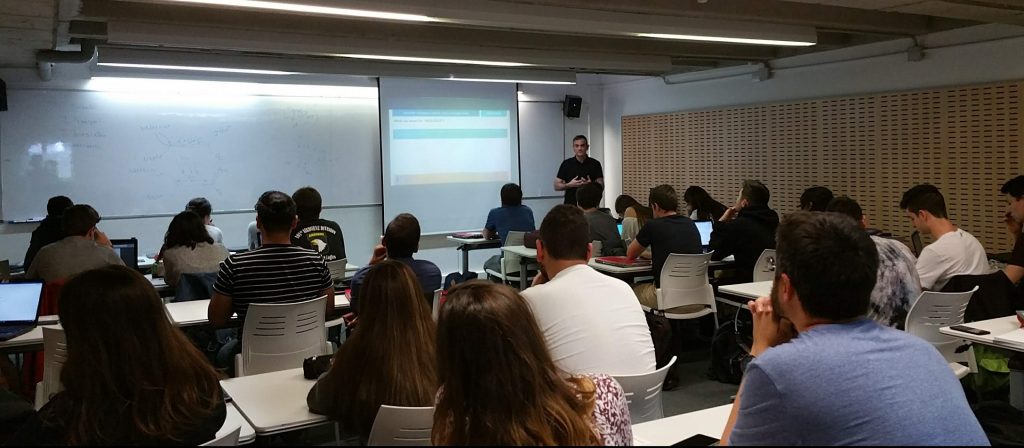UST-SEMINARS 23.05.2018. Ts116 15h-16.30h
By Mainardo Gaudenzi Asinelli, PhD
 ABSTRACT: Current global market monolithic rules such as proprietary licenses and patents prevented – and still prevent, the spread of creativity in the technological process. This represents a severe limit to hardware adaptation and customization, which are among the main key elements for the technological progress, and, subsequently for advances in research. Fortunately, during the last few years the convergence of open source and low-cost technology, technological acceleration and hyper-connectivity, open and free data access, and rapid prototyping techniques has been rapidly emerging as the backbone of a more sustainable approach to technology. The proliferation of maker spaces, open and free databases and instructables, as well as the availability of low cost electronics easy to program and to use, is promoting the spread of the so called sharing knowledge culture among global active citizenship. But to what extent institutional research actors are conscious of this acceleration? To what extent academic researchers could benefit from a closer links with citizen scientists and makers? Is there a compatibility between technology developed under the sustainability umbrella and scientific reliability? This seminar will try to address these and other questions, by giving a glimpse of current research projects based on open source hardware and software as the ground of technological sustainability. Projects spreading across biology, medicine, cultural heritage, engineering, will be presented and discussed, with examples of investigations based on sustainable technology currently ongoing at the Department of Engineering of the UST. The aim is to promote a genuine debate on this emerging model in institutional research, on its pros and cons, on its vision and ethical principles, as well as on its future perspectives.
ABSTRACT: Current global market monolithic rules such as proprietary licenses and patents prevented – and still prevent, the spread of creativity in the technological process. This represents a severe limit to hardware adaptation and customization, which are among the main key elements for the technological progress, and, subsequently for advances in research. Fortunately, during the last few years the convergence of open source and low-cost technology, technological acceleration and hyper-connectivity, open and free data access, and rapid prototyping techniques has been rapidly emerging as the backbone of a more sustainable approach to technology. The proliferation of maker spaces, open and free databases and instructables, as well as the availability of low cost electronics easy to program and to use, is promoting the spread of the so called sharing knowledge culture among global active citizenship. But to what extent institutional research actors are conscious of this acceleration? To what extent academic researchers could benefit from a closer links with citizen scientists and makers? Is there a compatibility between technology developed under the sustainability umbrella and scientific reliability? This seminar will try to address these and other questions, by giving a glimpse of current research projects based on open source hardware and software as the ground of technological sustainability. Projects spreading across biology, medicine, cultural heritage, engineering, will be presented and discussed, with examples of investigations based on sustainable technology currently ongoing at the Department of Engineering of the UST. The aim is to promote a genuine debate on this emerging model in institutional research, on its pros and cons, on its vision and ethical principles, as well as on its future perspectives.
Mainardo Gaudenzi Asinelli, PhD
Mainardo research focuses on technology applied to cultural heritage conservation science, with special emphasis on low-cost and open source technology. From summer 2016, he joined UVIC-UCC as Marie Curie Sklodowska researcher to run the smARTS project funded under the EU Horizon2020 programme, whose main goals are to prototype smart and low cost devices to monitoring, mapping and analyse art’s materials, as well as decay and conservation treatments processes.


Leave a Reply